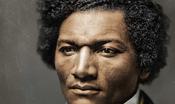article
One Nation, Many Gods

Research shows that a world religions course helps reduce intolerance among students without undermining students' religious beliefs.



Opposition to equality is, unfortunately, not new to the history of the United States. Recognizing the relevance of history to today’s justice and civil rights movements is crucial for understanding and countering current pushbacks against democratic values. Analyzing the opposition to the Civil Rights Movement can help us to understand the exceptional strength of the ordinary people who were part of the movement. And recognizing that racism wore both institutional and individual faces can help us to understand the importance of the movement’s achievements and the work that remains.